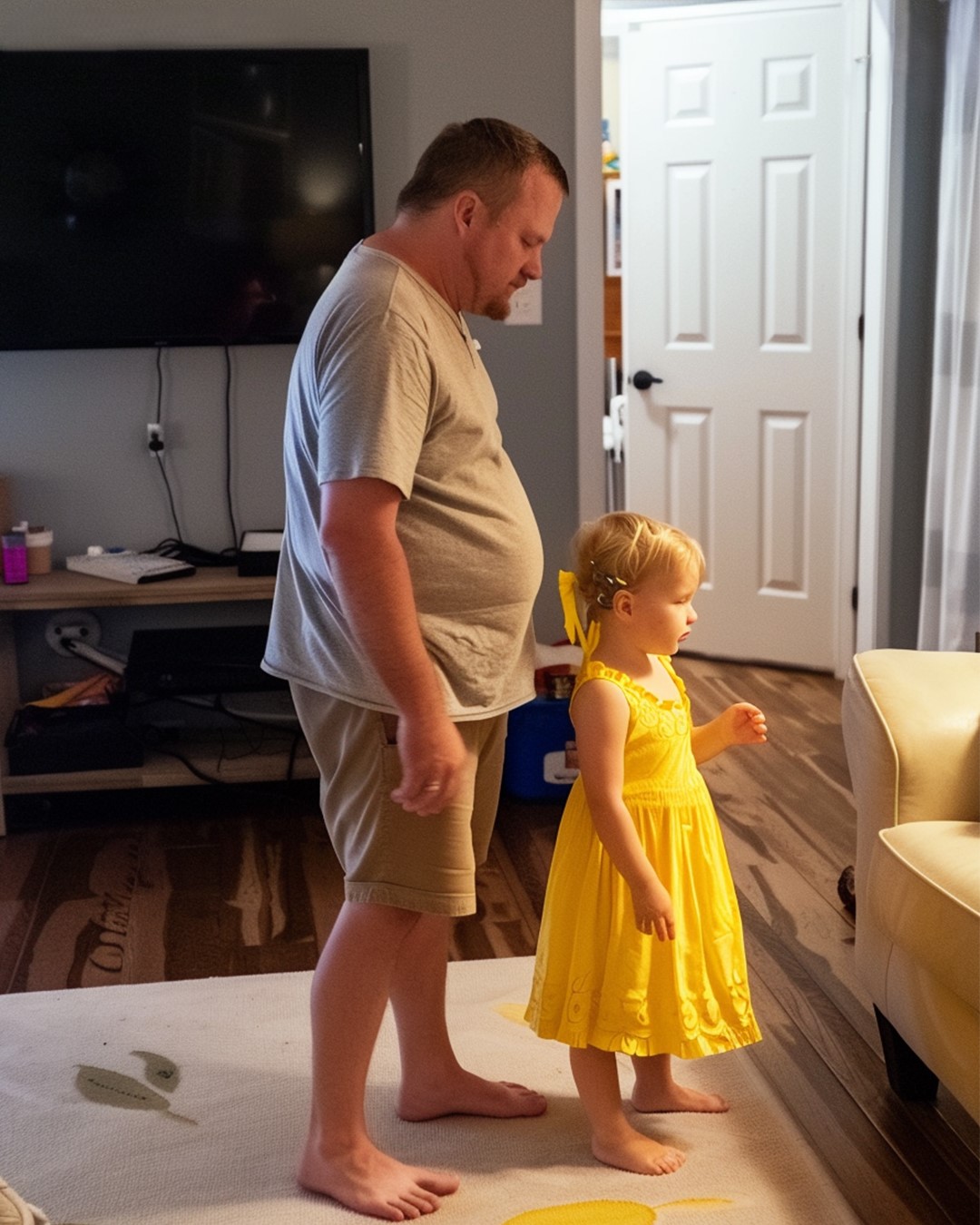Tired from his early flight and the day’s excitement, Henry nodded off. When he opened his eyes, the house was too quiet. Mira was missing. Heart pounding, he rushed from room to room, only to find a window open and a small shoe near the fence.
He located her next door in a neighbor’s treehouse, chatting with another child. Relief and frustration warred within him. “Mira, you scared me,” he said, climbing into the treehouse. “You can’t just disappear.”
She blinked at him, her tone unapologetic. “You fell asleep, and I was bored.”
Henry couldn’t argue that point. “True enough,” he admitted, exhaling a shaky breath. “But you really worried me.”
Mira studied him. “Why? Because you actually care?”
He paused, surprised at how easily he replied, “Yes, I do.”
That evening, when Riley returned, Henry found himself oddly reluctant to leave. Mira ran to her mother, beaming, recounting snippets of their day. As Henry grabbed his keys, he realized how different he felt—like he’d seen a version of himself he’d always pushed aside.
Driving home, Mira’s words echoed in his mind: “Maybe you’re scared.” For the first time, he wondered if she was right. Perhaps he hadn’t been avoiding family life out of genuine preference, but rather out of fear—fear that he wasn’t ready, that he’d fail, or that it would be too much work.
But after a single day with Mira, he felt a new sense of possibility. Maybe the life he’d carefully shielded himself from was actually what he needed all along. Sometimes, it takes a child’s honesty to unravel years of stubborn belief.
